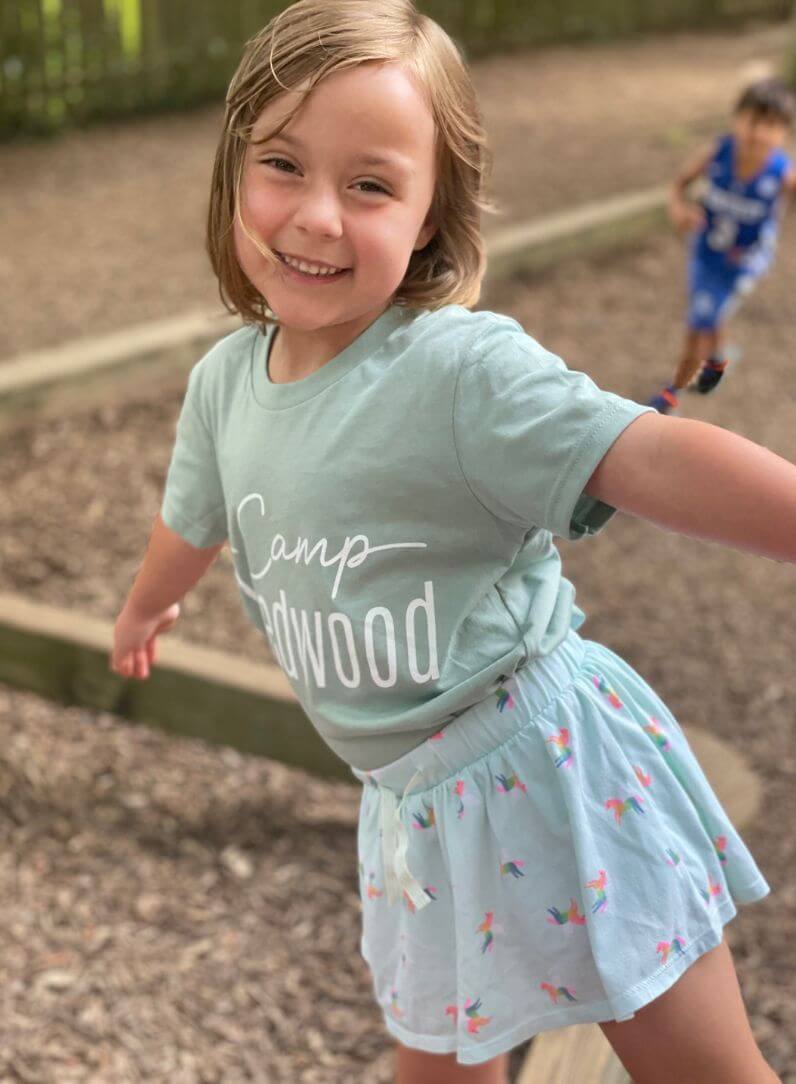How do we know our students are learning?

Sarah Cummins, Head of School
This is a question that is often asked, especially by visitors who are not familiar with Redwood. Without the traditional letter grades, number grades and computer-based standardized tests how do we know? The answer is that we know so much more about our students and what they are learning than any of those other platforms can tell us. The way that we assess and report learning is such an important process for us and we want everyone to understand the why behind what we are doing.
At Redwood, we believe that learning is a continuum and our assessments should match that. Rather than points along a line, learning fluctuates and flows. We use this concept of a learning continuum to identify areas of strength or areas that need more growth for each student. Each child should be met where they are and motivated, inspired and guided to achieve goals. We can use our methods of assessment to create opportunities and curricula based on the skills needed for each student.
While our students do not take standardized tests, they are working one-on-one with their teachers and the teachers are using this time with students to conduct informal assessments regularly, if not daily. Each time they sit down with a student and ask them to read outloud or solve a problem, they are assessing learning and, if they recognize that a student has mastered a concept or needs a little more help to understand a concept, they can adjust the materials and curriculum to immediately meet those needs. These formative (informal) assessments are ongoing and continuous. We are regularly checking in with students to assess progress and adjust instruction accordingly. Social and emotional growth is also assessed in a more continuous manner, as we make regular observations and collect anecdotal notes.
Summative (formal) assessments are also conducted throughout the school year. These assessments, along with the ongoing formative assessments, help us determine a student’s mastery of a learning target. Summative assessment tools are thoroughly reviewed and researched before a decision is made to implement them at Redwood. They are based on current state and national learning standards and give us a more formal way to “score” learning. Of course, what you will see in a progress report is an explanation of these assessments. The actual scoring is for our teachers to utilize to help guide the next steps in learning for each student.
As educators, we know that we need to help our students learn, and we know what they need to learn. The goal of an assessment should be to tell us, as educators, what we need to do in order to help our students succeed and achieve these learning targets. The goal should not be to label a child with a letter or number that serves as a deterrent or motivator. There is a lot of current research on the topic of grades versus child-centered assessments. In the book Role Reversal: Achieving Uncommonly Excellent Results in the Student-Centered Classroom (2013), Mark Barnes suggest that in gradeless classrooms “teachers would learn how to effectively assess academic performance, and students would become independent learners, driven by curiosity and inspiration rather than by the empty promise of a “good” grade or the threat of a “bad” one…the goal is to steer students away from passive learning and into a more active role in their schooling. The focus is on the learning process rather than the score, the pressure of performance replaced by an environment where students feel free to make mistakes, continuously self-evaluate, and develop deeper understanding. It also champions increased parent involvement and teacher feedback.”
Just like with our model of social and emotional development, we focus on the intrinsic value in achievement, not because a letter or number is associated in their mind as a reward or consequence. Learning should be fun and what we tell our students about their learning is a determining factor in how they perceive learning. We strive to develop a love of learning! How we communicate achievement to our students is so very important to this process.
So, the answer is: yes, we do know that our students are learning. We are attuned to every aspect of their growth because of the way we teach and assess and we are happy to have the opportunity to share our process with you as well.
